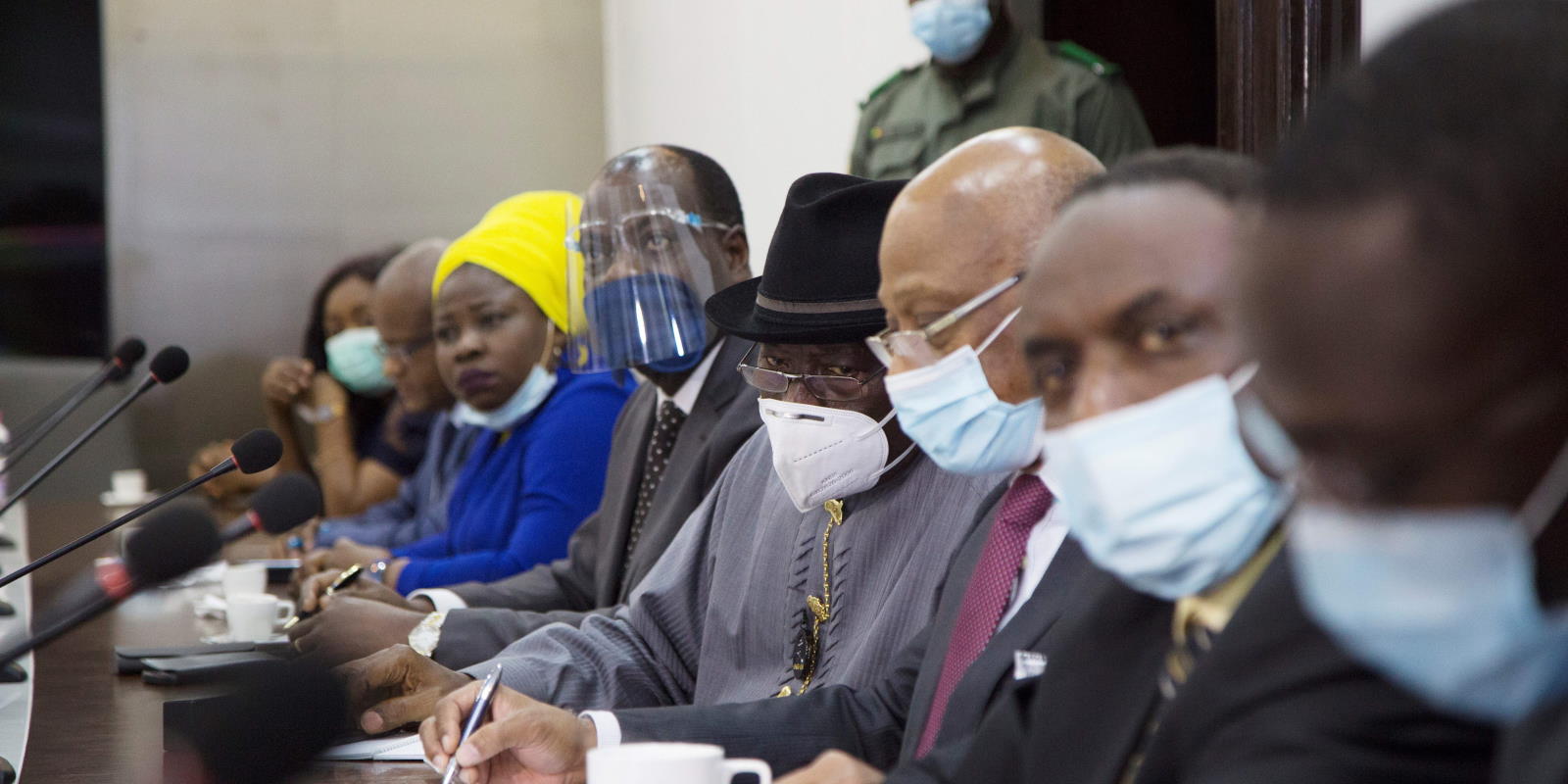This worrying picture, which attests to the fragility of the countries of the Sahel-Saharan region, is rooted in a breeding ground for vulnerabilities linked to poor governance and the limited impact of public policies on the well-being of citizens.
The magnitude of the multidimensional crisis, combined with the COVID-19 pandemic, requires all partners to continue and step up their efforts in the Sahel to prevent the region from falling further into chaos @PierreBuyoya
Tweet
The states of the Sahel region, with their partners, have taken important measures to curb the harmful effects of the COVID-19 pandemic on their populations, as well as on the direct functioning of state services, given the major contraction of the economies of different countries in the region. Tax revenues have declined due to the slowdown in economic activity as a result of the crisis, leading to a review of state budgets and the possibility of reducing investments in the security and development sectors. The projected contraction in growth in 2020 has cost the region significant losses in terms of gross domestic product (GDP), with the immediate consequences of pushing millions of citizens into poverty and affecting the delivery of basic social services.
The situation deserves special attention on the security front. There has been no respite from offensives by armed terrorist groups, despite the efforts of states of the region and their partners. In spite of the pandemic, terrorists do not appear to be held back in their incursions against regular forces in the region. The special military efforts made since the beginning of 2020, which have begun to have a significant impact on the action of armed terrorist groups, could be in vain if the countries of the region and their partners, faced with the scale of the COVID-19 pandemic, were to review their budgetary priorities by reducing the funds allocated to the fight against insecurity in favour of the fight against the virus.
The human rights and humanitarian situations have largely deteriorated. This is mainly due to the decline of the security situation, particularly in Mali, Burkina Faso and Niger, where insecurity limits the movement of people and goods, including the agro-pastoral activities of the populations. In these countries, there have been cases of violations and infringements on the right to life, attacks on the physical integrity of people, and more, which have been committed by armed bandits and terrorist groups. The COVID-19 pandemic has greatly aggravated this situation.
The magnitude of the current multidimensional crisis, combined with the effects of the COVID-19 pandemic, requires partners to continue and step up their efforts in favour of the Sahel to prevent the region from falling further into chaos.
For all these reasons, the AU continues to support the efforts of the countries of the region. Despite the COVID-19 pandemic, the AU continues to implement the decision of the AU Heads of State, taken at its 33rd Ordinary Session, to supplement the efforts of Economic Community of West African States (ECOWAS) and the G5 Sahel by deploying an additional AU force of 3 000 soldiers. The aim of this operation is to significantly weaken terrorist groups and to strengthen the operational capabilities of defence and security forces in the region, so that they are more able to prevent and respond to terrorist attacks and banditry.
In addition, to minimise the adverse effects of COVID-19, the AU has established an African strategy to combat COVID-19, with the appointment of special envoys to mobilise international support for African efforts to address the economic challenges of COVID-19. The AU has also established a COVID-19 Response Fund, with the aim of strengthening the continent’s response to COVID-19 to:
- boost the capacity of the Africa Centres for Disease Control and Prevention (Africa CDC) to support the response to public health emergencies on the continent;
- support the purchase and distribution of essential COVID-19 medical equipment and supplies; and
- mobilise a rapid response from member states and to mitigate the socio-economic and humanitarian impact on African populations.
To do this, the AU – through the Africa CDC – is on the verge of carrying out 10 million tests for COVID-19 in Africa by the end of October 2020. In addition, it will train 100,000 health workers to support the response to COVID-19, and deploy one million community and health workers in Africa by the end of 2020.The continental organisation has already operationalised a continent-wide common procurement, storage and distribution platform for laboratory diagnostics and medical supplies.
Concomitantly with this solidarity, the efforts of the current president of the Assembly of Heads of State, H.E. Cyril Ramaphosa, made it possible to mobilise international solidarity in favour of African countries through the establishment of a moratorium on debt servicing of the poorest countries, of which Mali was one of the first beneficiaries.
Moreover, the international community has strengthened its commitment and solidarity through the creation of the Coalition for the Sahel. This coalition aims to coordinate the actions of all actors involved in the Sahel along the following four pillars: 1) the fight against terrorism; 2) the strengthening of security and defence capacities in the G5 Sahel countries; 3) the re-establishment of the presence of the state and basic services, including internal security capacities and the justice and criminal justice chain, throughout the territory; and 4) the intensification of development efforts. This integrated approach takes into account the priorities and concerns of the countries of the region to better respond to the current challenges.
Finally, it is important to note that despite the slow progression of the COVID-19 pandemic in the Sahel countries, its impacts on health, economy and security within the region remain real and major. However, the actions taken by governments, the AU and its partners in the region to fight COVID-19 will help mitigate its consequences.
H.E. Pierre Buyoya is Special Representative of the Chairperson of the African Union Commission for Mali and the Sahel.

